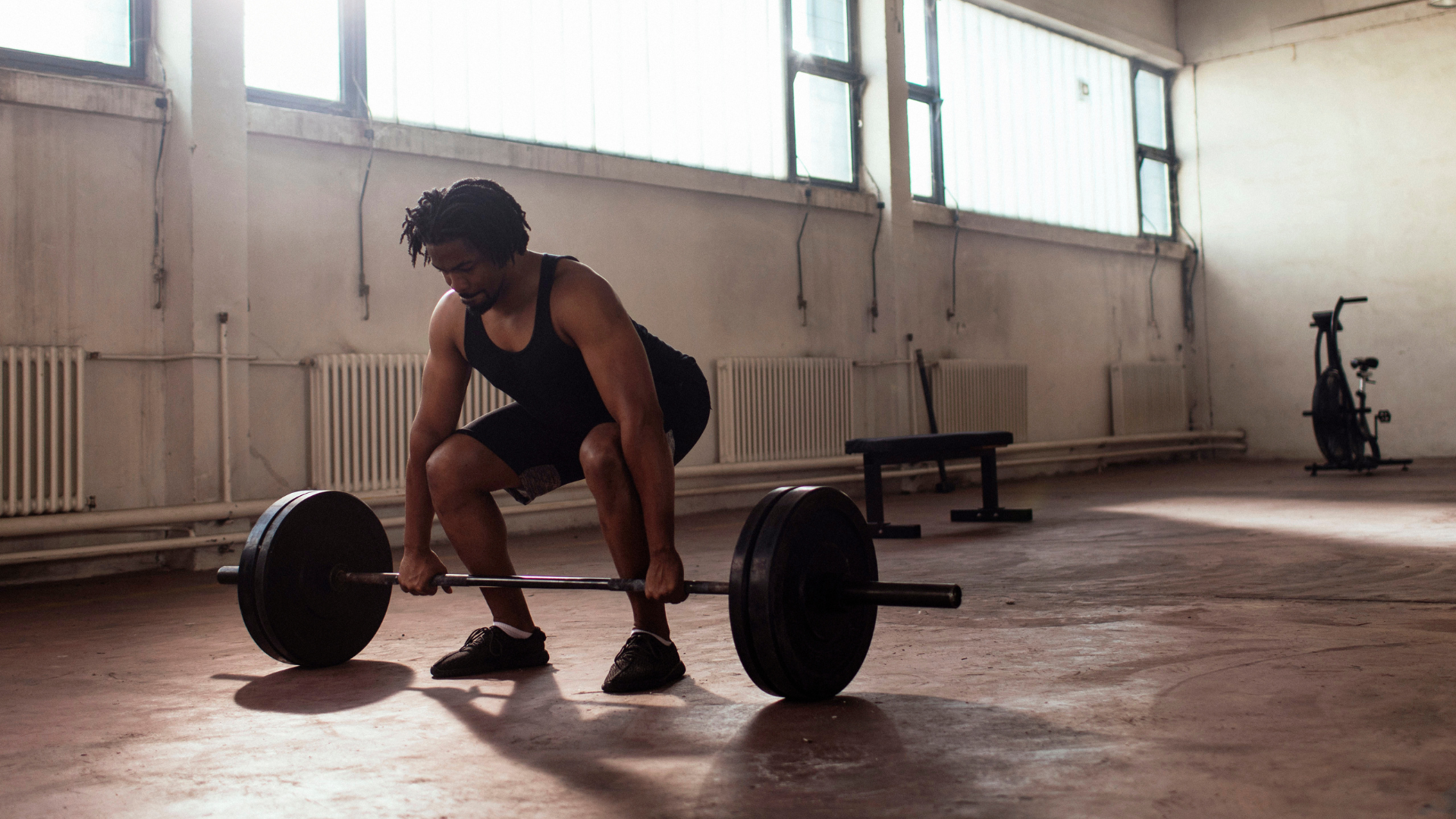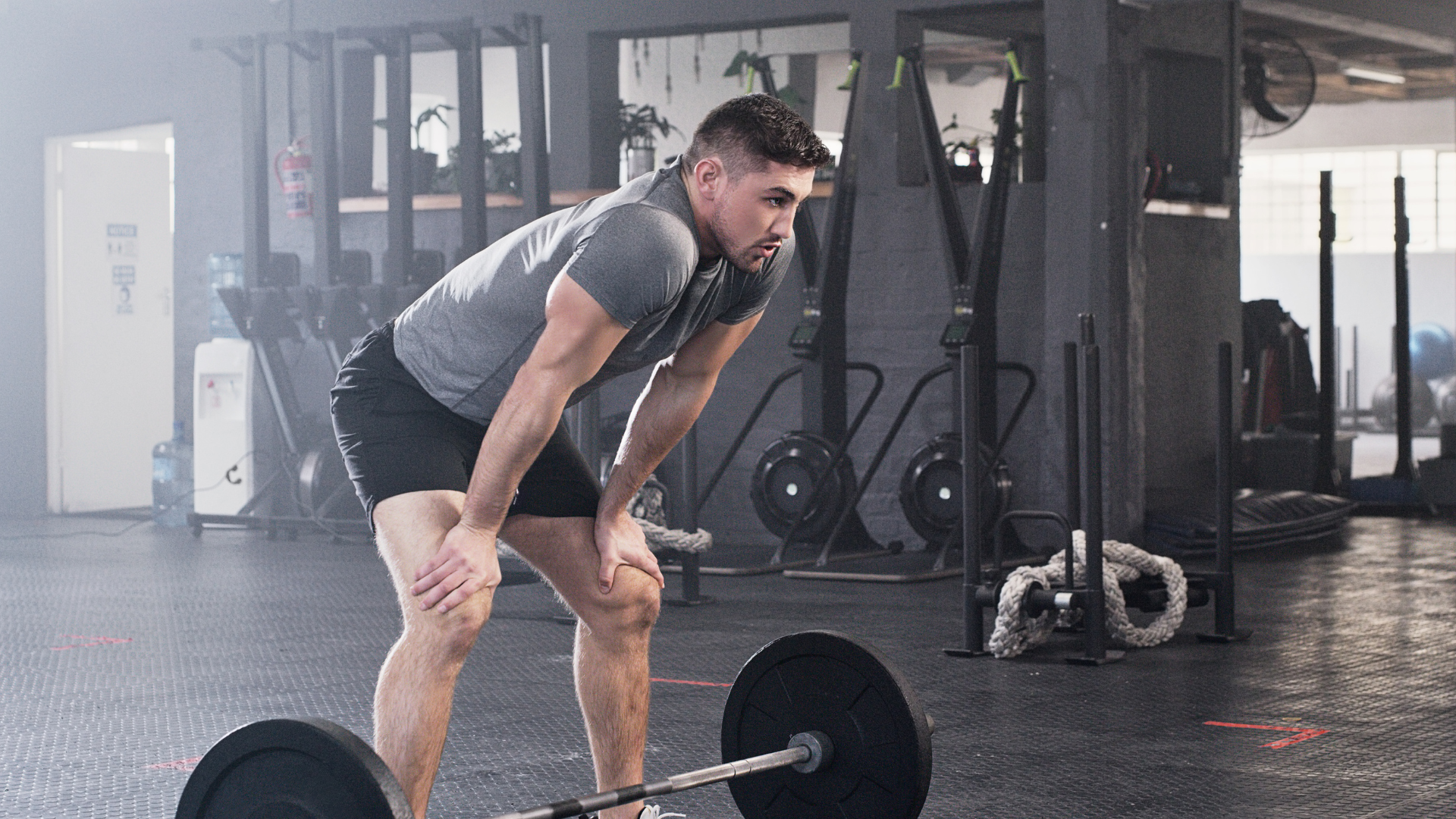
Hit a plateau with your training? Constantly feeling fatigued? Are your PBs basically non-existent? Then it may be time for deload. We all hit a brick wall in our training at some point or another, after all, we can’t be smashing out PBs all the time.
However, instead of trying to go even harder with your training, you’re better off working smarter, and that’s where a deload week comes in. Before you know it, you’ll be breaking through your training plateau and back to seeing those gains in no time. Here’s everything you need to know about deloading…
What is a deload?
A deload is a phase in your training where you reduce the intensity of your workouts, to give your body a well-deserved break and time to recover. “If you’re strength training, that might mean lifting lighter weights, performing fewer sets, reps, or giving yourself extra rest periods, or a combination of all three,” says Nick Mitchell, CEO and Founder of Ultimate Performance. “If you’re a cardio bunny, a deload session might mean reducing your speed on the treadmill, the bike, or rower.”
Just like we need a break from our job, if you’re consistently working hard in the gym, you’ll need to give your body a break too. The idea of a deload is that you’ll be able to return to your training feeling refreshed, helping you to break through any plateaus. Most deloads often last a week – hence why they’re often referred to as a ‘dealod week’ – but they can last up to a maximum of 14 days.

Is a deload a good idea?
Yes, in fact Nick explains that, no matter what type of training that you’re doing, you could end up doing your body more damage than good if you aren’t giving it time to recover. “If you’re strength training with weights and pushing your body to its limit three or four times a week, your joints and your nervous system will probably need a bit of a break,” says Nick. “The risk is that if you continue to push yourself, without giving your body a rest, you could place too much stress on your body and develop signs and symptoms of overtraining.” We jump into these specifics further down.
How often should I deload?
There’s no fixed answer here as we’re all different, so this really comes down to you and the intensity of your workouts. Nick says that those training competitively may require a deload every 3-6 weeks, whereas those who train hard and consistently four times a week may only need one every 6-12 weeks.
He continues to explain that women may also benefit from taking a deload week more often, especially as they move into the luteal phase of their menstrual cycle. “Progesterone levels peak, meaning a woman’s response to strength training won’t be as high," he says. This therefore may be a good time to lower the intensity slightly.
But Nick says that the best thing you can do is to listen to your body. "If you start to see your performances in the gym dip, or you’re feeling more tired than usual, it might be beneficial to take a deload week," he says.
Signs that you may need a deload

As well as feeling like you've stopped progressing with your training, Nick says you should consider a deload if you're experiencing a combination of these symptoms:
- Poor sleep quality
- Your muscles feel sore all week
- Water retention and “fluffiness”
- Emotionally irrational, moody or a little depressed
- Joint pain and susceptibility to injury
- Compromised immunity
- A lack of motivation to train
However, if the thought of not going hard with your training fills you with anxiety, Nick suggests dropping one session a week to really focus on active recovery. This is one way to lessen the intensity of your training to give your muscles more time to recover. "Active recovery can actually help by promoting better blood flow and nutrient delivery into the areas that are sore," says Nick. This could include activities such as walking, swimming, a bike ride or even yoga.
He also suggests using a foam roller or a massage gun can also ease tight muscles, and increase circulation and nutrient delivery. However, he says the most important (and overlooked recovery method) is getting enough sleep.
What a deload week is NOT
A deload done correctly will be good for your body, mind and help you achieve your fitness goals. However, there are some common mistakes Nick says people often make with a deload week, which you should avoid.
Firstly: "A deload week does not mean a week off where you can stop exercising, stop moving, and shovel whatever junk food and processed crap into your mouth," he says. "With deloading weeks, you should continue to exercise, and you should continue to feel either a burn or out of breath by the end, but you leave the gym floor knowing you’ve left something behind. That’s the sweet spot. You’re still stimulating your muscles and encouraging them to grow, you’rejust not pushing them to their limits."

If, however, you do feel you need a week or two off from the gym, that's completely fine. In fact, Nick's actually an advocate for this if you feel that you've fallen out of love with exercise and you just need to recharge your battery – but that's not taking a deload week.
The second thing is your diet and not changing it drastically. Just because you're not training as intensely, doesn't mean you need to start cutting out calories and as Nick puts it "starving yourself like a pigeon", as this could actually hamper your recovery. "Continue to prioritise eating real foods (not Frankenstein foods that claim to be high in protein but are full of sh*t) such as lean proteins, slow-acting carbohydrates and fibrous vegetables," says Nick.







